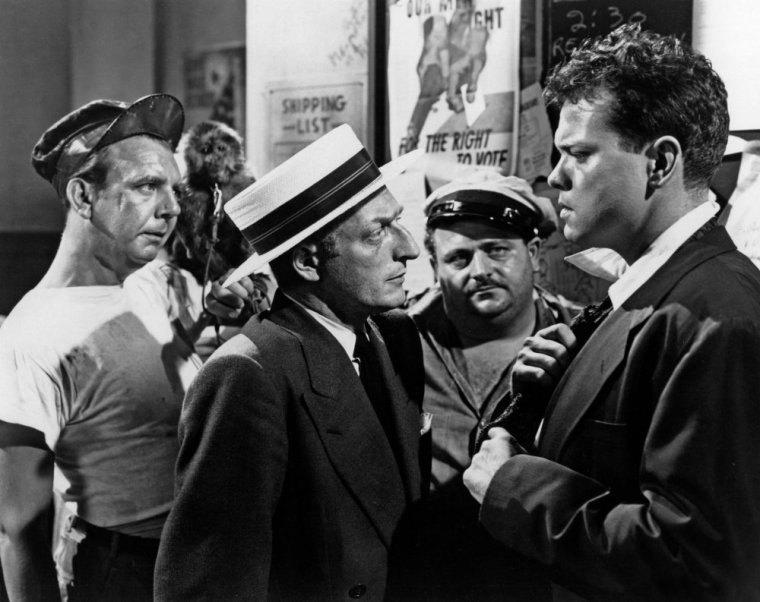
Everett Sloane (centre) is The Boss, and don’t forget it. Image: BFI
In an Orson Welles movie, you need actors who aren’t overshadowed by his charisma.
Welles established himself as a legend before he came to Hollywood, a Man Of Vision who discarded convention, but was smart enough to cast actors who could push against him.
This is crucial when playing Welles’ adversary.
Look at his film noir, The Lady from Shanghai (1947). Welles stars as drifter, hired as a sailor on a private yacht owned by wealthy Everett Sloane and his wife, Rita Hayworth. The couple are planning an excursion from New York, through the Panama Canal, to San Francisco.
Welles narrates the film in a faintly amused manner, as though he can’t believe What Just Happened. His account focuses on this sunny voyage with strange undercurrents. He refers to it as “a bright, guilty world.”
Sloane and Hayworth portray the wealthy but unusual couple. Hayworth is young and beautiful, while Sloane is a twisted-up middle-aged man who can’t walk without his canes.
Hayworth wants a divorce, and Sloane knows it. Welles, the poor slob, falls in love with Hayworth, and Sloane knows that, too.
At first, we have confidence in Welles’ character; after all, he’s a healthy young man. If he chose, he could easily take on Sloane.
But Sloane is an especially tough customer. What he lacks in physical strength, he has in mental acuity – especially when it involves Mind Games.
Sloane steals the movie with his tightly-coiled bitterness and obvious delight in torturing others. For example, he addresses Hayworth as “Lover”, in a sing-songy, demeaning way.
His character smugly occupies his Rightful Place in the world, and his continual boasting about it is restorative.
In one scene, he discusses his domestic servant, Bessie (Evelyn Ellis), as though she weren’t standing there, serving his tea. Sloane, the actor, digs into a lengthy monologue as though he were digging into a buffet:
“Money cannot bring you health and happiness, et cetera. Is that it? Pfft! … Look at this yacht. It once belonged to Jules Bachrach, the great Bachrach, who kept me out of his club because my mother was a Manchester Greek. I got him on perjury. He died bankrupt, and here I am. Each man has his own idea of happiness, of course, but money is what all of us have in common. Take Bessie here. She used to work for Bachrach. I pay her more, don’t I, Bessie? … Her salary means happiness…. Bessie goes to church every Sunday she gets off and prays to God she’ll never be too old to earn the salary I pay her.”
See what kind of a person we’re dealing with here?
He’s a man with a twisted-up soul. Yet, Sloane offers glimpses of his character’s love for Hayworth, which automatically defaults to mockery when rebuffed.
Eventually the yacht arrives in San Francisco, where the action culminates in one of the most famous and oft-copied scenes in filmdom: The chase through the Hall of Mirrors.
Everett Sloane (1909-1965) wanted to be an actor ever since he was a kid growing up in Manhattan. He joined a repertory theatre company in the late 1920s, but had to take a job on Wall Street to support himself. Thanks to the 1929 stock market crash, his salary was cut in half, so he took acting roles on radio.
It was a smart choice; Sloane became a very busy radio actor. He began appearing on Broadway in 1935, and later joined Orson Welles’ Mercury Theatre. Welles subsequently cast him as Mr. Bernstein in the film Citizen Kane, which may the role he’s best known for today.
Sloane moved into television in the 1950s and received an Emmy nomination for his performance as Walter Ramsay in Rod Serling’s corporate takedown, Patterns. (Sloane played Ramsay in the 1956 film version as well.)
But. Sloane’s eyesight began to deteriorate, and in 1964 he retired from acting. Wikipedia says his failing eyesight caused him severe depression, and he committed suicide in August, 1965.
Fortunately, some of his work survives, allowing us to study his impressive versatility. You can watch a tribute to him here.
Everett Sloane never played to type or public image. He was the best kind of Hollywood actor: The character actor.
Correction: Mike Doran, in his comment below, says Everett Sloan never formally retired. Mike writes: “In 1965, the final year of his life, he racked up quite a few TV guest shots (see IMDb for details); the final one, an early episode of Honey West, aired in November of ’65, shortly after his death. TV Guide called attention to its posthumous status in its listing for that date.”
This post is part of the WHAT A CHARACTER! BLOGATHON hosted by Once Upon a Screen, Outspoken & Freckled and Paula’s Cinema Club.
The Lady from Shanghai: starring Rita Hayworth, Orson Welles, Everett Sloane. Written & directed by Orson Welles. Columbia Pictures Corporation, 1947, B&W, 87 mins.
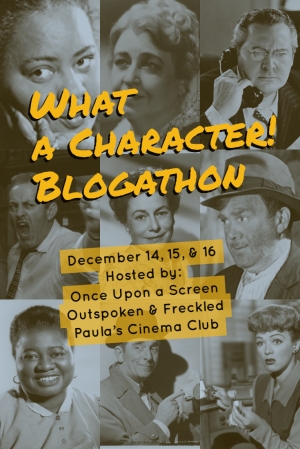


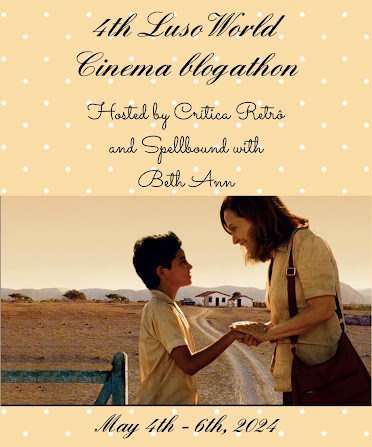




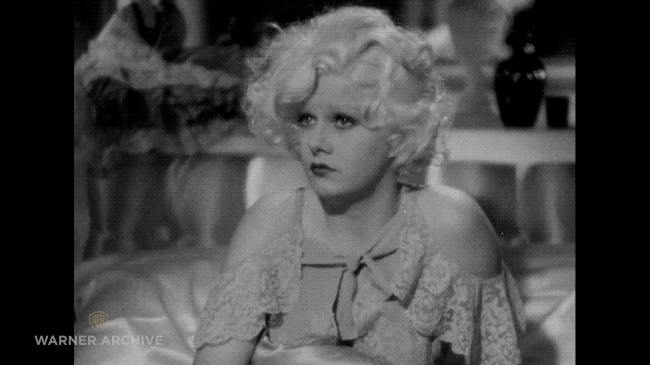

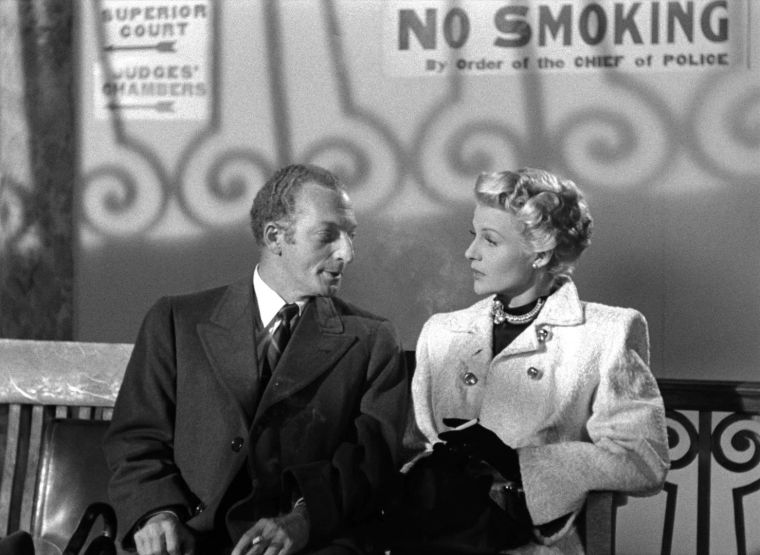
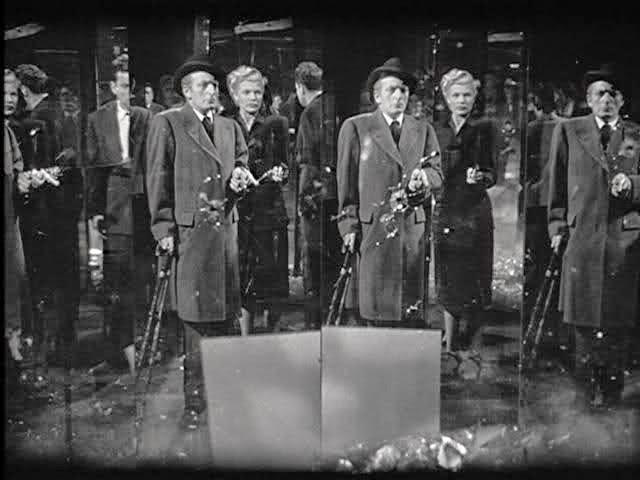


Character actors are the unsung heroes of cinema and TV! 🙂 They’ll always have work and they never go out of style!
LikeLiked by 1 person
Haha! You said it, sister!
LikeLike
Everything spot-on. Brilliant performance. RE-posted on twitter @trefology
LikeLiked by 1 person
Awesome! Thanks!
LikeLiked by 1 person
My first thought when Everett Sloane pops up is a guest-starring role on Bonanza. He played a crazy shepherd who kidnapped Adam in an attempt to get some Ponderosa land. He truly frightened me as a kid. He truly impressed me as an adult.
LikeLiked by 1 person
It shows how versatile Everett Sloane is, right? So believable in every role.
LikeLike
Is it just me, or don’t they “make character actors like they used to?” Everett Sloane was but one of many unique character actors “back in the day.” To name but a few: Edward Everett Horton, William Demarest, Peter Lorre, Margaret Dumont, Hattie McDaniel, Elisha Cook, James Finlayson, Erik Rhodes, Eric Blore. It’s hard to imagine some of their films being nearly as enjoyable without them.
LikeLiked by 1 person
I agree: They really don’t make character actors like they used to. The ones you listed in your comment were some of the best, who helped make good movies great.
LikeLiked by 1 person
When I think of Everett Sloan, PATTERNS always come to mind. It was a brilliant performance because his corporate executive is ruthless and cruel…but also a savvy businessman. I agree that he’s also quite good in LADY FROM SHANGHAI.
LikeLiked by 1 person
I really like Sloane in Patterns, too. In fact, I like him in everything. To me, he’s an actor who always gives you your money’s worth.
LikeLike
Wonderful post. I’m a big Columbo fan and he and Robert Mitchum are my favourite fantasy Columbo killers.
LikeLiked by 1 person
Now that you mention it, both of these men would be fascinating Columbo villains.
LikeLike
I haven’t seen much of Everett Sloane but he always left an impression. Like a lot of people I’ll always associate him with Mr Bernstein and the “Girl with the White Parasol” in Citizen Kane, What a send end to his life.
LikeLiked by 1 person
Yes, a very sad end to his life. A tragedy, really.
LikeLike
Nice discussion of Sloane. I think it’s a testament not only to Welle’s brilliance in choosing supporting actors for his films but also to the actors whom he chose themselves that so many of them were able to carve out such interesting careers on their own and didn’t just fade into the background (like Joseph Cotten and Agnes Moorehead). I thought Sloane was excellent in The Lady from Shanghai and also in Patterns and very different from the dry-humored but harmless Bernstein of Citizen Kane.
Tam May
The Dream Book Blog
https://thedreambookblog.wordpress.com
LikeLiked by 1 person
Good point! Many of the Mercury Theater actors were able to have stand-alone careers. He certainly had a eye for talent.
Have you seen The Other Side of the Wind, perchance?
LikeLike
Yes, yes and yes!!! Your subject made me so happy – a true scene stealer!
LikeLiked by 1 person
Ha! Thanks, Marsha. Everett Sloane is one of the best things about this film, isn’t he?
LikeLike
Very nice writeup. Like a lot of others, I first became aware of Sloane from television: his episode of “Twilight Zone” is one of the first I remember ever seeing. He pretty much carries the episode himself, which centers around a prudish man who wins a trip to Vegas with his wife and becomes addicted to the slot machines. It’s interesting to contrast that role, and this one, to the much more sympathetic performance he gave in “Citizen Kane.”
LikeLiked by 1 person
I need to see that episode of Twilight Zone. Ever since I started researching him, I want to see all his work. I think I’m becoming an Everett Sloane completist.
LikeLiked by 1 person
Great selection … Everett Sloane was great, i particularly love him in Patterns (1956). He died too soon.
LikeLiked by 1 person
He did die too soon, like you said. He was incredibly gifted.
LikeLiked by 1 person
He is just so great at everything. I had no idea his life ended so tragically.
LikeLiked by 1 person
It was a real tragedy… Such a talented actor!
Thanks for organizing this blogathon, and for including me.
LikeLike
You’re so welcome! It’s always great to learn about these performers who really make the movies.
LikeLiked by 1 person
Actually, Everett Sloane never formally retired.
In 1965, the final year of his life, he racked up quite a few TV guest shots (see IMDb for details); the final one, an early episode of Honey West, aired in November of ’65, shortly after his death.
TV Guide called attention to its posthumous status in its listing for that date.
To me, this emphasizes the tragedy of his suicide all the more; he was only 56 years old (that’s twelve years younger than I am right now), and obviously still in demand as a character actor.
Since we don’t know the exact nature of his vision problems, we don’t know whether they might have been treatable by the medical science available – then or now.
Meanwhile, there’s all the work in film and TV that he left behind, so there’s that.
LikeLiked by 1 person
Hi Mike, thanks very much for pointing that out. Later today I’ll revise my post with the info you provided.
LikeLike
“In an Orson Welles movie, you need actors who aren’t overshadowed by his charisma.” I love your first line. Truer words were never written. 🙂 Everett Sloane was wonderful. One of the other commenters said it too, he’s great in Patterns, a favorite of mine.
LikeLike
Ruth! You’ve picked an exceptional character actor and you’ve nailed his performance in Shanghai perfectly. As always I enjoyed reading your submission! Cheers, Joey
LikeLiked by 1 person
Haha! Thanks so much, Joey! You made my day. 🙂
LikeLike
Great article! I never realized he had committed suicide. Anyway, I’m glad we have his works. He was superb in The Lady from Shanghai, and I’m glad you chose to write about this film that I love so much.
Thanks for the kind comment! Kisses!
LikeLike